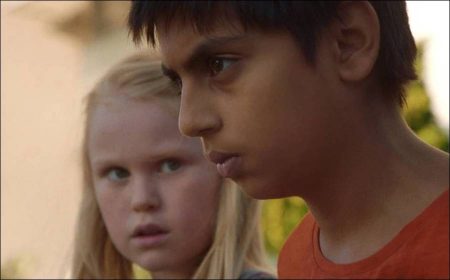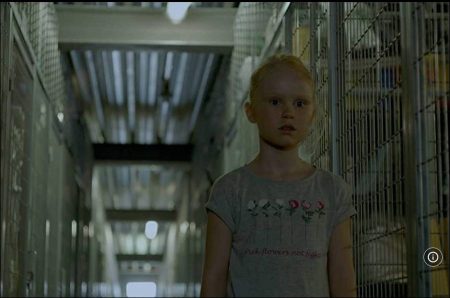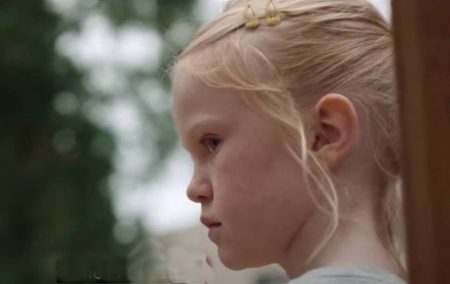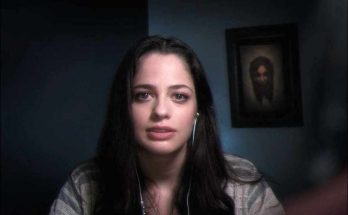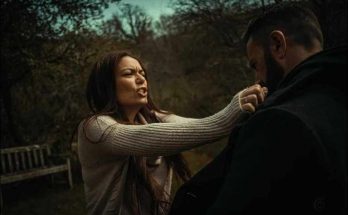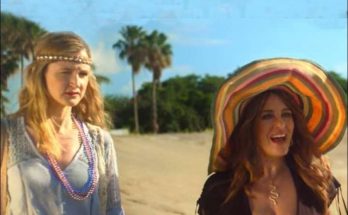The Innocents Movie Storyline. Four children become friends during the summer holidays, and out of sight of the adults they discover they have hidden powers. While exploring their newfound abilities in the nearby forests and playgrounds, their innocent play takes a dark turn and strange things begin to happen.
The Innocents (Norwegian: De uskyldige) is a 2021 Norwegian horror film directed by Eskil Vogt and starring Rakel Lenora Fløttum, Alva Brynsmo Ramstad, Sam Ashraf, Mina Yasmin Bremseth Asheim, Ellen Dorrit Petersen, Morten Svartveit, Kadra Yusuf, Lisa Tønne, Irina Eidsvold Tøien. In June 2021, the film was selected to compete in the Un Certain Regard section at the 2021 Cannes Film Festival. It was released on May 13, 2022 in the United States by IFC Films.
Film Review for The Innocents
De Uskyldige / The Innocents, the second feature film of Eskil Vogt, who has contributed to the scripts of important films of Joachim Trier, one of the leading directors of Norwegian Cinema, appeared in front of the audience last year. The first movie, Blind (2014), was a movie that started off well but was out of breath and disenchanted when it turned out to be a metafiction. Although it included all the positive and negative aspects of the approach of telling by connecting (or not connecting) several parallel section storylines, which other Norwegian directors like to use from short films to feature films, it was a promising work for the future, considering the scarcity of flaws.
The Innocents is the story of four children living in Norway, Ida, Anna, Aisha and Benjamin. But three of these four children are disabled or marginalized. Anna (Alva Brynsmo Ramstad) has regressive autism. He can’t speak, he lives in his own world. Aisha is of African descent. His mother and father are separated.
Aisha has a pigment problem that causes white spots on her skin. Benjamin’s (Sam Ashraf) mother and father are also separated. The only child without any handicap is Anna’s younger sister Ida (Rakel Lenora Fløttum). Children with disabilities, namely Anna, Benjamin and Aisha, have special abilities. Benjamin begins to use these abilities to harm others. The entire movie is about other children’s struggles with Benjamin.
The fact that the title of the movie is The Innocents pretty much sums up its main premise. “I think children are beyond good and evil,” Vogt said. Rather, it is not good or bad yet,” he says, adding: “But I don’t think they are little angels like newborn babies. Children do not have innate moral values and empathy skills. We have to teach them.”
For example, regarding the child harming an animal, “This is not necessarily a danger signal. Children try many things at a young age. The rhythm of development of empathy can be different,” he says. So, is Vogt in favor of a strict moral education, especially in the family? He says: “Morality begins with parents telling what is right and wrong. The real perception of morality must find its ground within you… You have to try many things to discover your inner moral compass. You have to go beyond what your parents say is reasonable for you to do.”
Aside from discussing the accuracy or inaccuracy of the quotations we made from Vogt, it is possible to say that the transfer of these ideas to the film was successful. Jealous that her autistic sister is always in the limelight, Ida putting shards of glass in her shoes, Ida crushing worms in the mud and letting Benjamin drop the cat out of the apartment are always such “experimental” evils.
There is hardly anyone who did not do such things as a child. So where can the villainy of the movie’s bad boy Benjamin be attributed? Benjamin is a boy living with his mother. His mother is apathetic and tends to upset Benjamin at times. It is therefore plausible to think that Benjamin had false experiences and began to build his morality on this unfavorable ground. Of course, even at his worst, Benjamin is a child who is still trying to learn and improve by trying, who can shed tears over his mother, whom he hurt with anger.
Vogt’s approach to the subject reminded me of something from Alfred Adler’s Individual Psychology. Adler’s views on issues such as character formation, life purpose, and compensation mechanisms seem to have greatly influenced Vogt’s approach. Adler says:
“Character traits are not innate, as many think, they are not given to man by nature; It’s like a basic direction, it nestles in the human being like a model and allows it to act like a consistent person in any situation without much thought. These features, which are not based on innate powers or foundations, are acquired by the individual in an early period, but later in order to be able to adhere to a certain lifestyle. Therefore, no child is inherently lazy; If a child is lazy, he is lazy because he sees laziness as a suitable tool that will make life easier and not have to give up his dignity.”
Adler also defines what he calls “life purpose”: “If we recall our previous explanations, in order for a person to have a point of view with his way of life and behavior, a vital purpose must necessarily be determined. We can neither think nor do anything without our eye on a specific purpose. Such a goal reveals itself as a dark silhouette in the child’s soul at an early stage, and determines the direction of the child’s entire development.
The purpose is the executive and creative power that enables each individual to create a special unit, a unique personality different from the others; all movements and expressions of man are directed towards a purpose, a common point; Therefore, we always know a person no matter where he is on the path he follows, and we can say what kind of person he will be.”
Adler, children of birth order (growing up as an only child, growing up with siblings, being an older or younger sibling), having congenital physical and sensory abnormalities (sight, speech, hearing impairments, being beautiful or ugly, being fat or thin, etc.) He says that he directs them to some compensatory pursuits and interests in order to close these gaps.
“There are such facts, spiritual characteristics and forms of bodily expression that they tempt people who grew up in the civilization we live in to emulate themselves. For example, the passion to know is among them; Sometimes this passion manifests itself in the guise of a passion for looking and watching, it can turn into curiosity as a character trait in children with some defects in their visual organs, but such a character trait will not necessarily develop. When he wants the basic direction he follows, the child develops such a character trait under the influence of his passion to know that he examines, disassembles, or breaks all objects, sometimes turning into a bookworm. The situation is not different in the sense of insecurity of people with impaired hearing.”
Adler states that the life purpose that children acquire affects their attitudes towards life. For example, when he encounters a difficulty, whether he will walk directly on the difficulty, whether he will go around it or withdraw, are always the attitudes determined by this life purpose. The supernatural abilities developed by Anna, Aisha and Benjamin are actually symbols that can be explained by the concepts of life purpose and compensation mechanism described by Adler.
The Innocents also has a strong proposition regarding communication: “True communication starts not when you talk to your interlocutor, but when you can feel the pain of your interlocutor.” Although the four children communicate with each other in the movie, Aisha is the first child who can communicate in real terms. Because he also feels the pain of the broken glass on Anna’s foot.
Aisha’s presence is also the beginning of the recovery of Anna’s condition with autism. Benjamin’s understanding of communication, on the other hand, is focused on influencing and using people, since it was founded on the wrong ground. The showdown in the finale of the movie comes to an end with Ida holding her hand as a symbol of being fully involved with her sister Anna.
As the story goes, it’s a bold decision for Vogt to put the four child actors in the background while keeping the actors I both found successful and admired, such as Ellen Dorrit Petersen, in the background. The child actors have overcome the burden. Vogt’s management and selection of children with the right physical characteristics contributed greatly to this. Because, thanks to these features, the attention can get away from the acting a little bit.
Eskil Vogt’s second feature film, The Innocents, is not only a film that manages to get rid of the flaws seen in the films of directors (Eva Sørhaug, Dag Johan Haugerud) who have gone from short to feature films and make them say “this is the movie”. He makes himself loved by establishing a unique language. It also stands out as an original production in Norwegian cinema, which I don’t think is successful in horror movies. Although the ending of the movie was not ambiguous, I felt that a door was deliberately left open. Maybe I’m wrong, but we may see a sequel with Ida, Anna and Benjamin in the coming years.
The Innocents (2022)
De Uskyldige
Directed by: Eskil Vogt
Starring: Rakel Lenora Fløttum, Alva Brynsmo Ramstad, Sam Ashraf, Mina Yasmin Bremseth Asheim, Ellen Dorrit Petersen, Morten Svartveit, Kadra Yusuf, Lisa Tønne, Irina Eidsvold Tøien
Screenplay by: Eskil Vogt
Production Design by: Simone Grau Roney
Cinematography by: Sturla Brandth Grøvlen
Film Editing by: Jens Christian Fodstad
Costume Design by: Marianne Sembsmoen
Set Decoration by: Louise Andersson, Louise Andersson
Art Direction by: Marius Winje Brustad
Music by: Pessi Levanto
MPAA Rating: None.
Distributed by: IFC Midnight
Release Date: July 11, 2021 (Cannes), August 27, 2021 (Norway), May 13, 2022 (United States)
Views: 319
